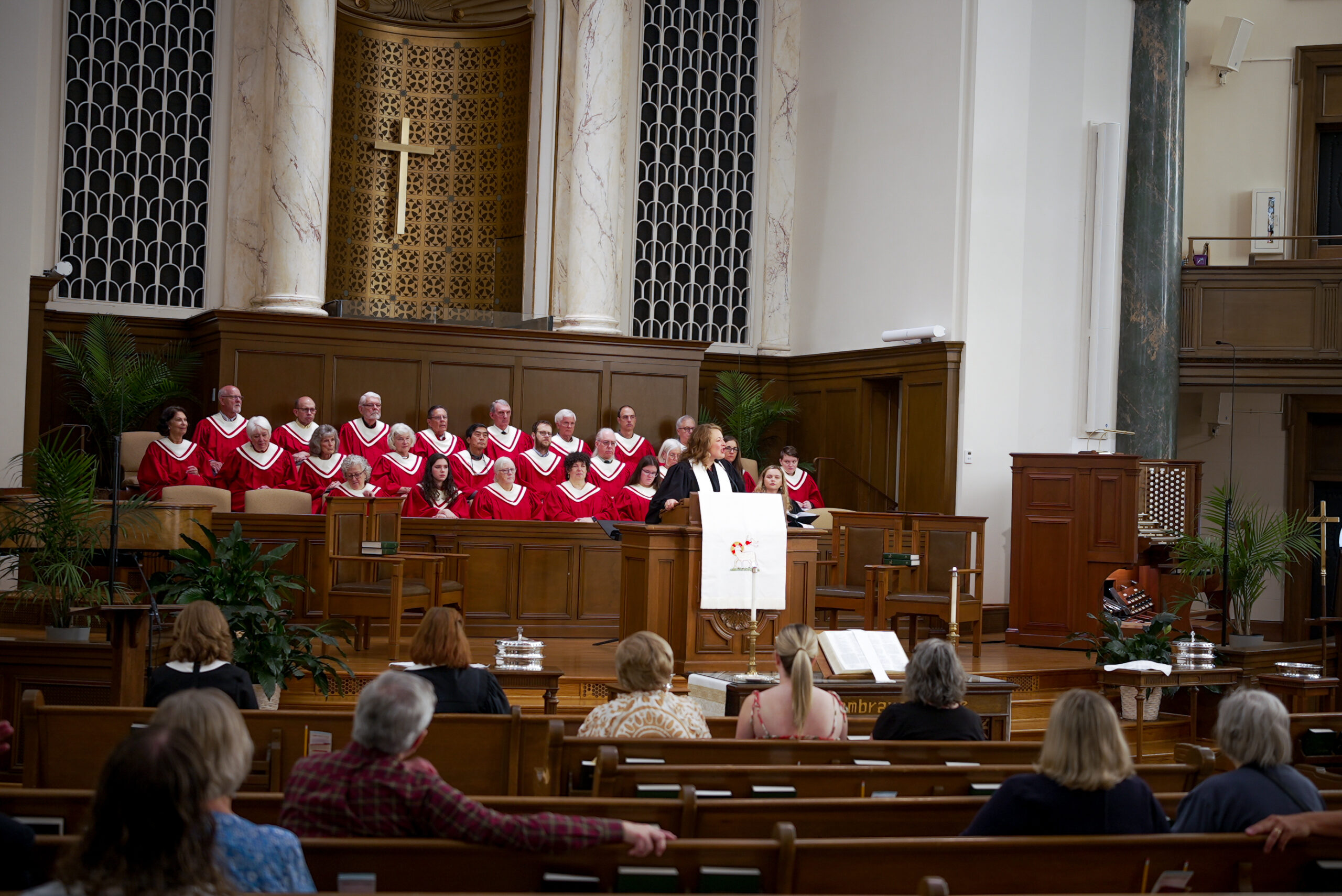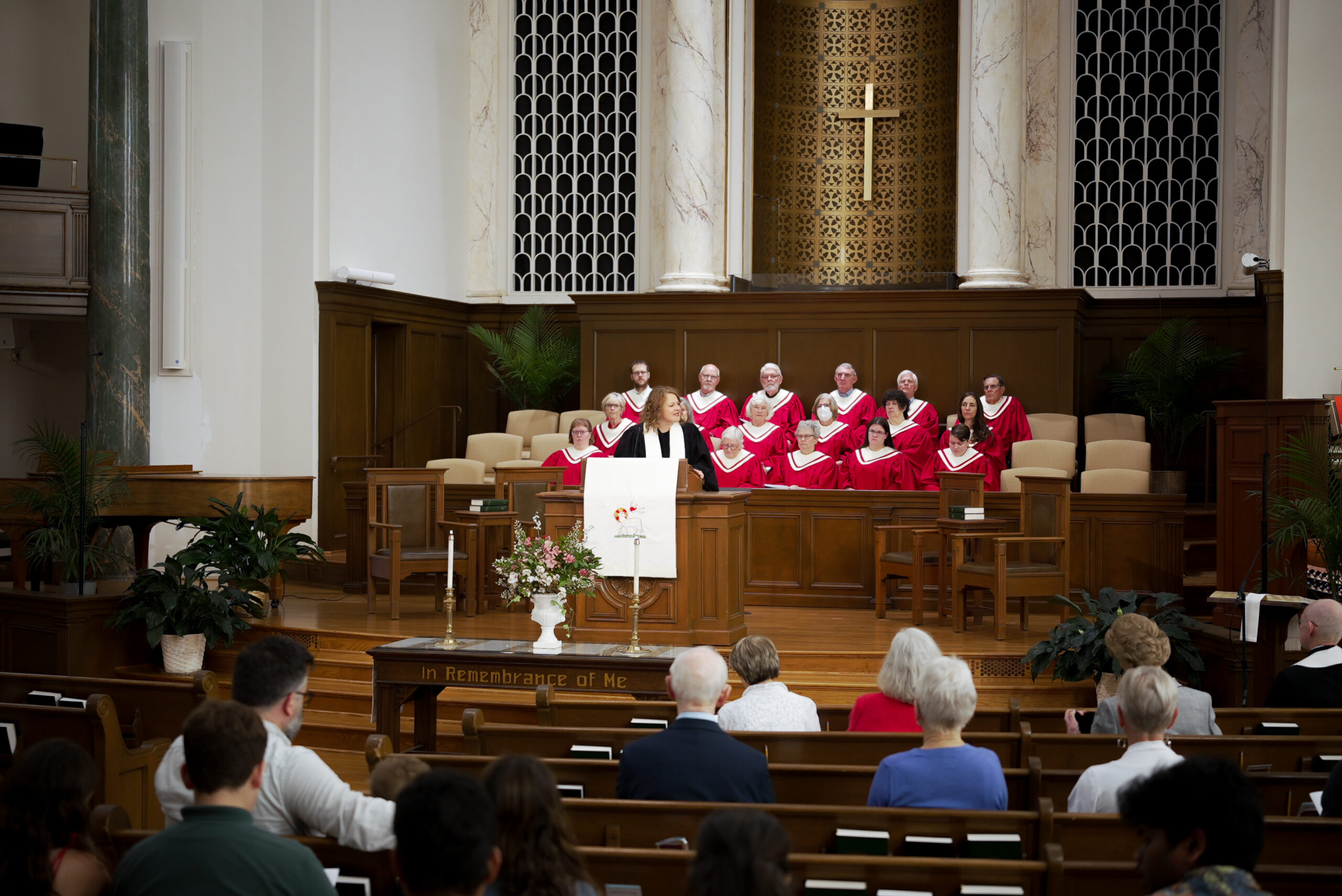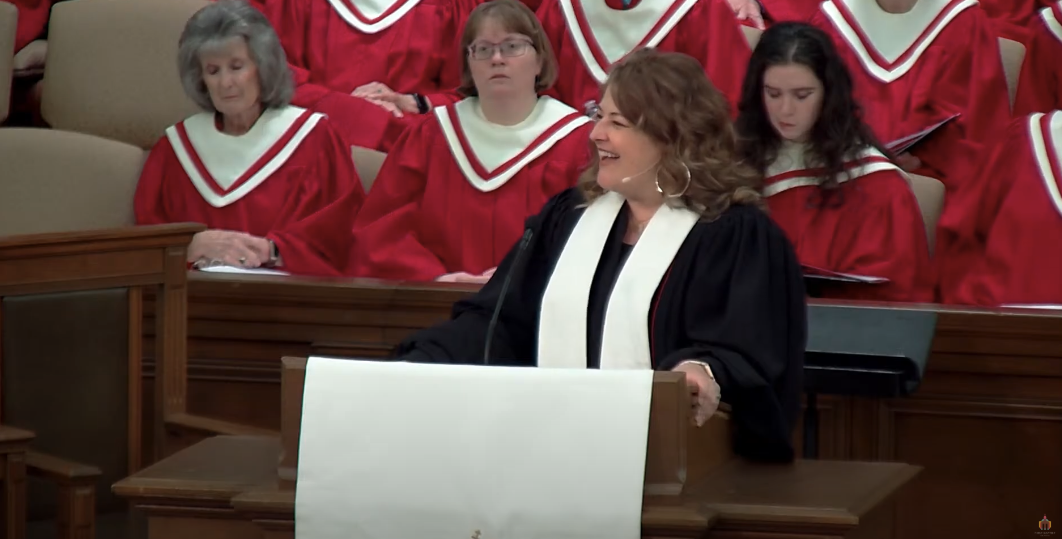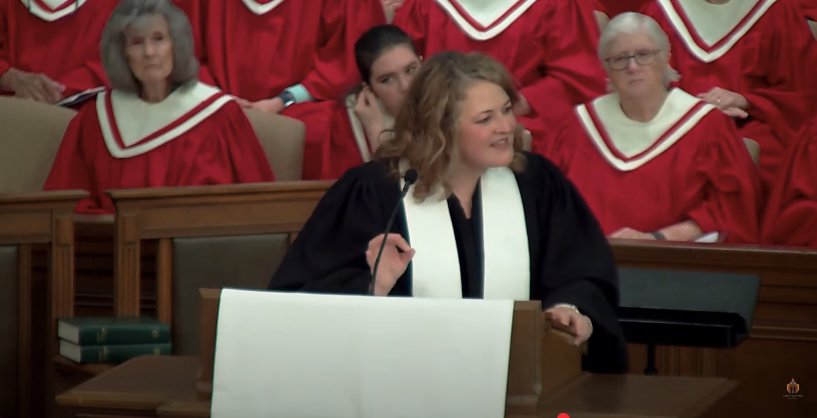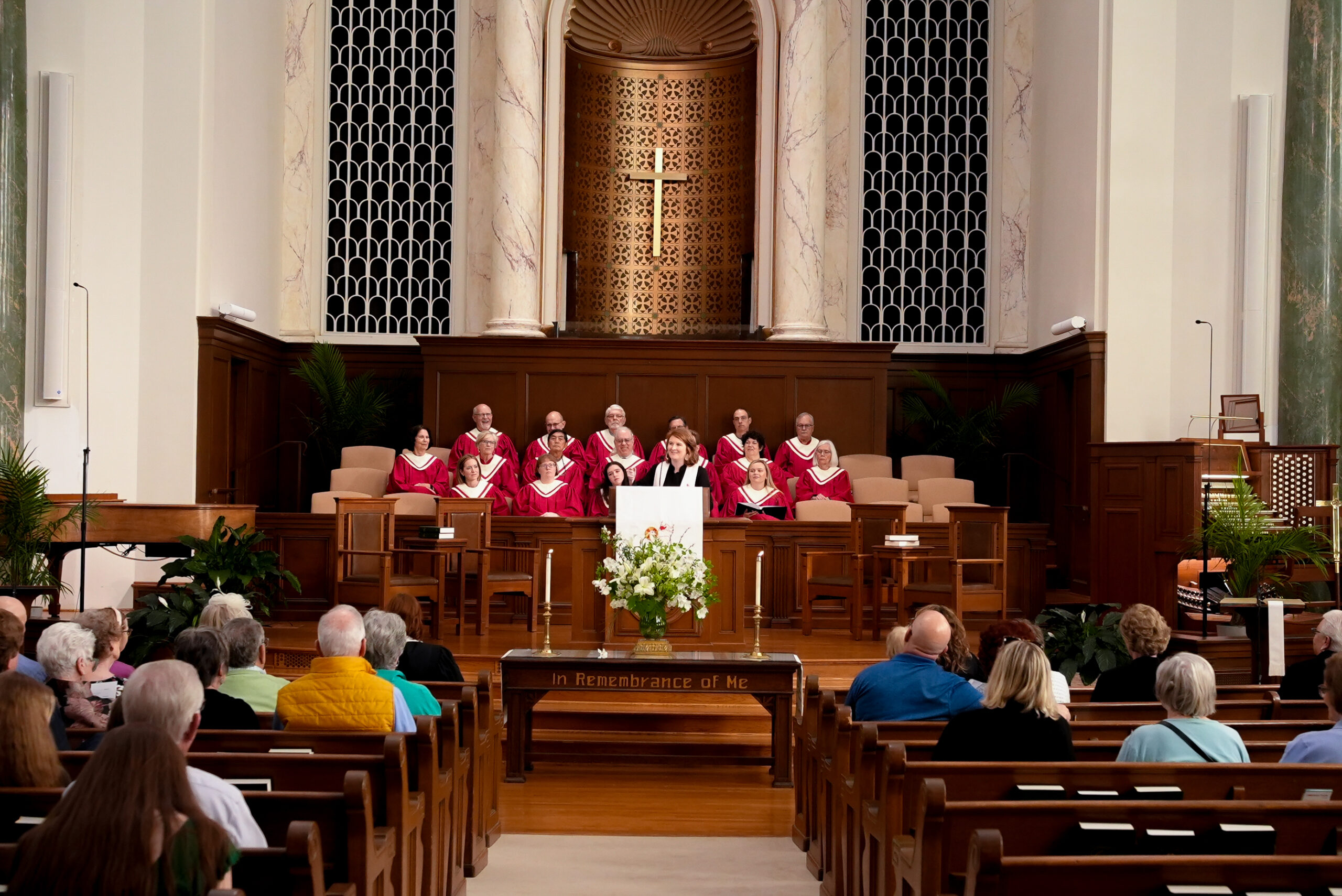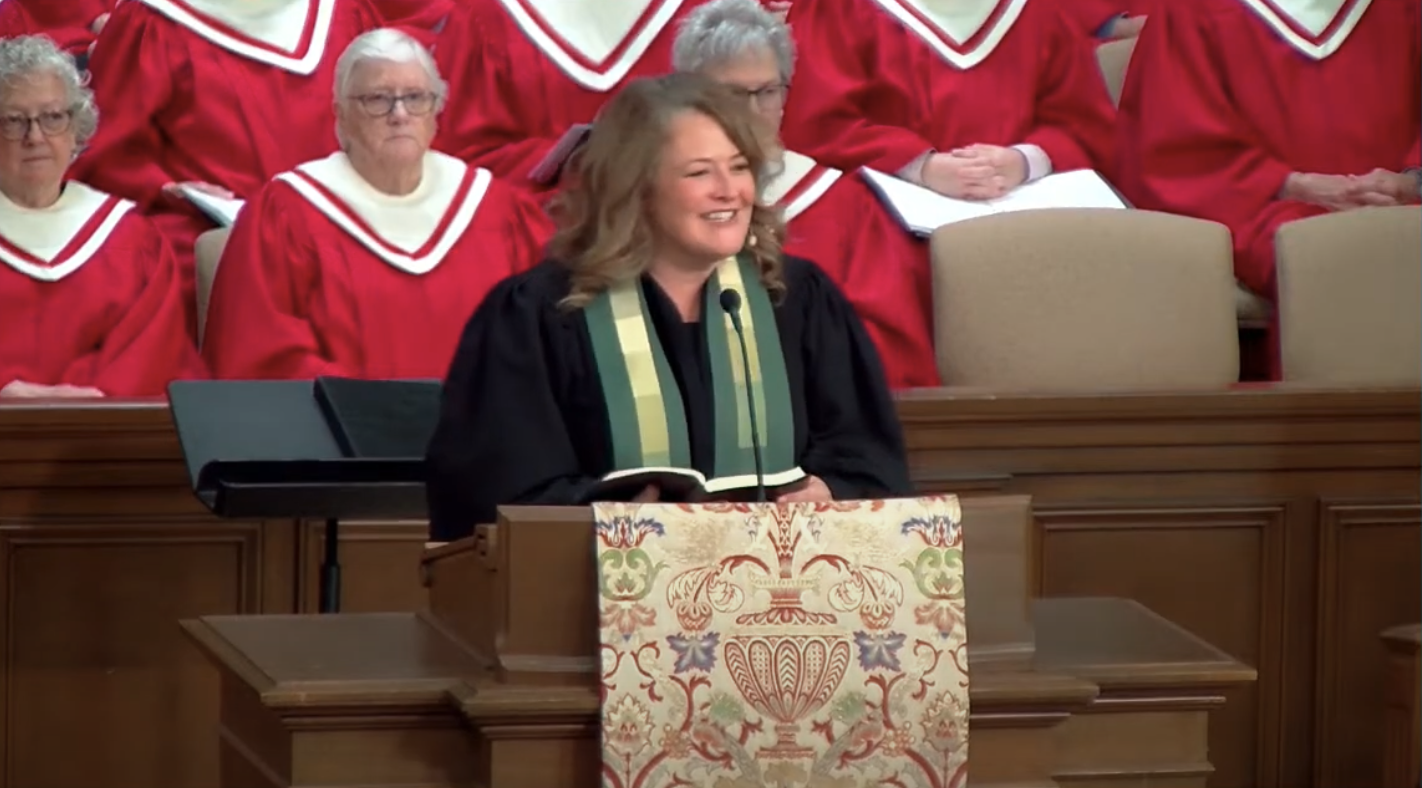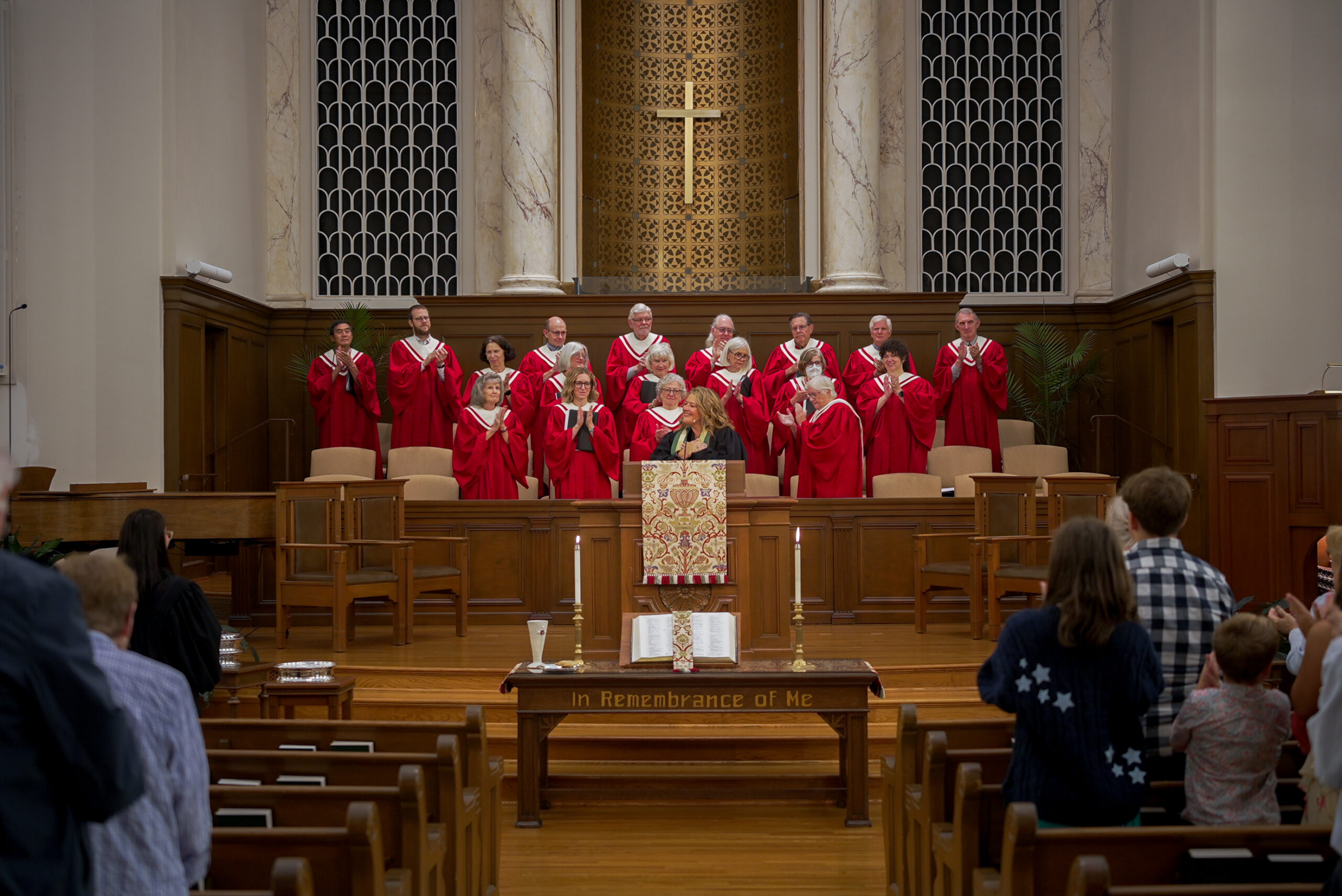I.Last week, Josh and I joined the many who were connecting dots between entertainment and current events by watching the movie, Conclave. Perhaps you’ve seen it too. Conclave tells the story of the death of the pope, all the moving parts in the immediate aftermath, the cardinals who seek after that highest of roles, and the one leader tasked with steering the unruly ship through the traditioned selection of a new pope.
It was a job that Cardinal Lawrence neither wanted nor sought after. Not long prior, he’d told the pope of his desire to step away from the work. The doubts that plague every follower of Jesus had grown increasingly more pronounced in his life. His struggle to pray grew into a crisis of faith, and he was sure this disqualified him from ministry. Yet the pope refused to accept his resignation.
In the opening meeting of the cardinals after their pope’s death, the viewer catches a glimpse as to why Cardinal Lawrence remains in the role, leading the conclave to elect a new pope. This gathering sets the tone for all that will follow inside the hallowed walls and in the frenzied chaos outside of them. It was there that Cardinal Lawrence offers a homily for their consideration, in which he says this: “Certainty is the great enemy of unity. Certainty is the deadly enemy of tolerance. Even Christ was not certain at the end. “My God, my God, why have you forsaken me?” he cried out in his agony at the ninth hour on the cross. Our faith is a living thing precisely because it walks hand-in-hand with doubt. If there was only certainty and no doubt, there would be no mystery. And therefore, no need for faith. Let us pray that God will grant us a Pope who doubts. And let him grant us a Pope who sins and asks for forgiveness and who carries on.”1
II.Amidst all the other dramatic twists and turns of Hollywood’s take on a papal selection, these are among the truest words spoken in the film. Oh how the human mind craves certainty. In her book on doubt, Jennifer Michael Hecht says, “We have an almost violent desire to understand things.”2 Certainty gives us clarity. It’s the sun that finally breaks through the fog, the minor chord that finally resolves, the moment of realization when the light bulb kicks on and you can never unsee what you’ve seen. Those moments help us make sense of our living.
For some people, the decision to follow Jesus is one such moment. Faith arrives almost with the clicking on of the light, and in a moment, all is transformed. Certainly that is some of the witness of resurrection that we see in these post-Easter days. When Mary hears the voice of Jesus and tells her friends, “I have seen the Lord!” When the women heard the words from the angels, “why do you look for the living among the dead?,” and left the tomb with fear and great joy to tell the other disciples what they’d seen and heard. When Peter raced with blind faith to confirm what they’d said. In a moment, the light had come on. The Lord had risen, and risen indeed!
But for others of us, faith doesn’t just happen. Uncertainties don’t go away when one meets Jesus. Ambiguities don’t resolve. Questions crop up just as fast as belief. What about suffering?, we wonder. What about loss? What kind of God refuses to intervene and set things right? What kind of resurrection is Jesus’s when the next cross is already being hammered into the dirt? Some of the faithful would relegate the questioners as “ye of little faith.” Yet for us who find comfort in the uncertainties, we have the witness of our brother Thomas.
Oh Thomas, that is, the one Christian tradition has called “Doubting.” Thomas the realist. Practical. Does his own research. Likely an engineer. Believes what he can quantify and measure. Frustrates the people around him when he refuses to just go along with the movement of the group, refuses to get swept into an emotional high, refuses to buy what they’re selling until he can see for himself. It’s his integrity, of course, but some call it doubt.
So when eleven of his closest friends tell them about the resurrected Jesus, no matter how much he trusts them or loves them or hears them, he’s the one who has to be the first-hand witness. “Unless I see the mark of the nails in his hands, and put my finger in the mark of the nails and my hand in his side,” Thomas says, “I will not believe.”
He had probably said that line a hundred times in the past week: to Mary Magdalene, to Peter, to the beloved disciple, to all the rest who were locked up in their fear. Didn’t they know? Thomas wasn’t even there! He wasn’t there at the cross, and didn’t see the nails driven into his Lord’s hands, and didn’t hear the thunder roll as Jesus breathed his last, and didn’t feel his presence in the garden, and didn’t see him enter that locked room. Thomas has to experience Jesus himself, otherwise he wonders if he’s missed the resurrection. Let the eager have Peter; Thomas is here for us who doubt. Who wonder. Who question. Who hold space for mystery, let certainty consume it all with explanations. The Gospel of John calls Thomas “the twin,” about which Frederick Buechner says, “if you want to know who the other twin is, I can tell you. I am the other twin, and unless I miss my guess, so are you.”3
III.So was I. My deconstructing years of faith began when I was in college – perhaps you can relate. It would be a decade before divinity school gave me the opportunity to pick up each piece, examine it with curiosity and intention, and decide where it now needed to go. But back in those years, there were large chunks of my faith that I was sure no longer served me. They landed on the cutting room floor, like chapters of a book the author felt didn’t work, or inches of hair cut for a new look, or dozens of minutes of film that were superfluous to the story. And among my certainties in those days was the refrain that grew quickly familiar on my lips: “I don’t believe in prayer.”
“I don’t believe in prayer” was my response when my devout college roommate said she’d pray for me when I was going through a breakup, or when my parents offered their prayers for me before a final exam, or when my gay friend told me how their youth minister had told them to “pray the gay away.” I don’t believe in prayer. I rehearsed it and bore it like a talisman against the pieties of my youth. That wasn’t who I was any longer! I didn’t believe in prayer!
It was my refrain all throughout my 20s. Even when in divinity school. Even when studying the ancestors of our faith, and their steady relationship with God through prayer. Even – especially! – when experiencing my first call to ministry as Minister to Young Adults. “I don’t even like church,” some of my young adults would say as they stepped gingerly into the stone walls at 1101 Cherokee Road to see if they’d still belong. “Well I don’t even believe in prayer!,” I’d shoot back with a smile. It was the doubt I was proudest to claim, as defining of my life of faith as any belief.
That is, until a couple of years into my tenure in Louisville. I was serving on the board of the Baptist Women in Ministry organization alongside our friend Meredith Stone, who now serves as its Executive Director, and we were on a board retreat out in the woods in rural Georgia. (Apparently you can find God in the woods of rural Georgia!) Our director at the time encouraged the board to get to know each other in our down times, so after our meetings ended for the day, Meredith and I took a walk together through those forest paths. Somehow in that conversation, we got onto the topic of prayer. “Yeah, I don’t believe in prayer,” I remember spouting off to her. “I mean, I just know too many friends whose fervent prayers never were answered, too many folks hurt by their church and ministers who claimed that prayers for their sick loved one would keep them alive and were despondent when it ‘didn’t work,’ too many of my own prayers that felt like they’ve just disappeared in thin air between my lips and God’s ears. Prayer? Not my thing.”
Meredith, gentle and clear, began to unpack those emotional claims with steadfast wisdom. Though I don’t remember the precise words she said, I remember that she made me feel seen and heard, validating my feelings and wrapping her words carefully around my impassioned heart. But she didn’t stop there. “What about all the times scripture tells us that God changes God’s mind in response to the cries of the people?,” she asks, without one ounce of defensiveness, not needing to prove her point or for me to change my mind, simply sharing from her heart. “Don’t you believe that God is a God who responds? Don’t you think God is actively engaged in reconciling all creation to God and one another? And isn’t prayer at its heart about the open relationship between us and God, not just the outcome of what is said?”
We walked in silence for a bit. I mulled over her thoughts, probably still too hot-headed to let them soak in, I can see now with the gift of distance. But I’ll tell you this – though it took me years to loosen the clutch of doubt I had over prayer, I never thought about it the same. In the years since, I’ve softened into the practice with more curiosity than guilt, more wonder than anger, more mystery than certainty. By letting go of this defining doubt, I’ve had to (and have to and continue to) retrain some well-worn grooves in my brain that work almost reflexively. When I stopped defending my disbelief in prayer, I began to notice, over and over again, how God would arrive: sometimes gently, or urgently, or persistently, or quietly in my prayers. To my precise wounds, Jesus would come with abundant grace, in a way I could receive – as he always does – and invited me, “put your finger into my hands, and press your hand into my side.”
When the lightbulb turned on for me, it illuminated the shadows too. The corners. And of course, the wounds. The scars. The mark. They didn’t go away, those wounds. The certain among us might long for a resurrected Jesus, whole and shiny and new. But the God who has ample room for mystery, who welcomes doubt to accompany faith, who hopes for truth to pierce through sight, for Thomas and all his twins ever since is the God who resurrected a crucified Christ, with holes in his hands and punctures in his feet.
IV.Did you notice in the text that Thomas is apart from his community as the story begins? He’s not in the locked room. He doesn’t see Jesus enter out of nowhere. He doesn’t hear him say, “peace be with you.” He isn’t part of the group to which Jesus says, “as the father sends me, so I send you.” He didn’t feel the Divine breath upon his skin. But a week later he was. And it was wrapped into a community of the certain and the doubtful and all those in between that Thomas met Jesus in a whole new way. “My Lord and my God!,” he said, a confession of faith as complete as any other.
“Blessed are those who have not seen and yet have come to believe.” If Thomas had a twin all throughout history, that’s who Jesus is blessing in this moment. You and me and all who have come before us and will come behind us to know and love the Lord. We who know what it feels like to struggle to believe, to be in such anguish that we remain stuck for fear of what we’ll encounter. We who know that our wounds lock us inside rooms of abandonment, despair, fear, indifference, codependence, neglect, oppression, trauma, rooms we never think we’re free to leave. We who have so fully rehearsed our doubt that giving it up feels like a loss.
Yet if Thomas’s story can encourage us at all, may we be encouraged by this. Faith isn’t the absence of doubt. Faith is not the presence of certainty. Rather, faith is the courage, neither to be paralyzed by either doubt or certainty. Quite simply, faith is trust, the fierce hope that allows us to trust the blowing winds of the Spirit to propel us from what chains us toward what sets us free.
And you know where it shows up best? In community. With one another. With the fullness of the human experience around us, so that if I cannot believe, you believe for me. If I cannot pray, you pray for me. If I can’t trust that God is with us, you hold fast to the truth of the gospel for all the others who cannot. I’m not just talking about me and you! If you can’t pray, someone else will pray for you! If you can’t believe, someone else will believe for you! If you can’t trust that God is with you, someone else can handle that and join you in your disbelief, unbelief, and doubt. Shoulder to shoulder, arm to arm, hand to hand, walking on the Way of life. Until all of us, in the fullness of who we are can say, “my Lord and my God!”
Friends, I wonder: what doubts have become defining for you? What wounds do you need to find, touch, see, hear in order for your wounds to be healed? What is keeping you from trusting the community for your living? Is the risk greater of being closed off or to become free?
My Lord and my God! May this be our prayer, now and forevermore. Amen!


